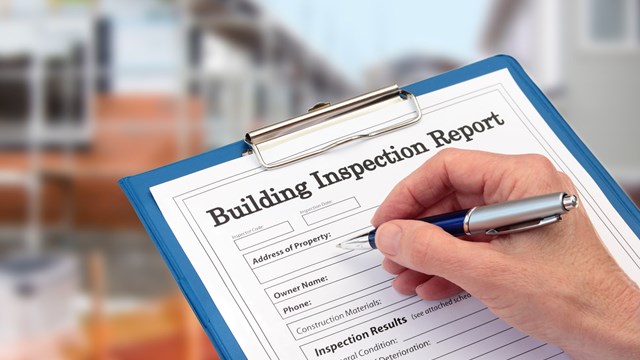The New Jersey Division of Taxation is cracking down and performing more sales/use tax audits of Common Interest Realty Associations (CIRAs) of all types—co-ops, condominium associations, and apartment buildings—than ever before. There are many common misunderstandings about sales/use taxes, and because of that, many communities may be at risk for significant penalties for failing to file and pay.
What is "significant?" There are documented cases in the industry where the Division of Taxation's proposed assessment for a negligent association has exceeded $100,000.
Sales Tax Versus Use Tax
Most merchandise (with notable exceptions, such as food and clothing) and some specific services are subject to New Jersey sales tax. In some circumstances, a customer may purchase goods or services that would otherwise be subject to sales tax from out-of-state vendors - in which case no sales tax is charged, because the vendor is not registered with the State of New Jersey. In other cases, the vendor may be New Jersey-based, but for whatever reason—whether correct or incorrect—the vendor does not charge the required sales tax.
When either of these situations occurs, the burden for payment of the sales tax obligation shifts to the purchaser; this tax is known as use tax, and is based on the same rules as sales tax—except that it is imposed on the buyer rather than the seller.
Correcting Common Misconceptions
Firstly, like individual consumers, associations are not exempt from sales/use tax. While certain income tax exemptions do exist, this does not translate into an exemption from sales and use tax.
Secondly, sales tax is due to the State of New Jersey, regardless of whether or not the merchant charges the tax—and regardless of whether or not the transaction occurs in New Jersey. If an association purchases a large-screen TV for its clubhouse from a New Jersey retailer, sales tax is due. The tax should be collected by the merchant at the time of the transaction and forwarded to the State of New Jersey
If the same community purchases a large-screen TV for its clubhouse from a merchant outside of New Jersey, the merchant may ship the item to New Jersey without charging proper sales tax—for whatever reason. As discussed above, the issue is that the tax due is a use tax, and accordingly, the association still has tax liability, even if the merchant does not collect the tax. It is actually the purchaser's responsibility to pay the tax, regardless of whether or not the merchant collects it. For applicable situations in which sales/use tax was due but not collected, then the association should file a return and ensure the payment of a six percent sales/use tax.
Common situations in which sales/use tax should be charged, but is often overlooked by vendors include repairs, maintenance, cleaning, and other miscellaneous non-capital improvement transactions.
Capital Improvements
If the service performed amounts to a capital improvement, the association should provide the vendor with—and retain a copy of—Form ST-8, Certificate of Capital Improvement. This form documents that sales tax should not be charged, because capital improvements are not subject to sales/use tax. The distinction between a repair and a capital improvement can sometimes be difficult, but the rule of thumb is that a capital improvement increases the capital value or useful life of the property, and is permanently attached to the real property. By that definition, paving of driveways would be considered a capital improvement, while simply patching a driveway would be considered a maintenance item.
Compliance Suggestion
Associations with potential sales tax liabilities can reduce their audit risk by filing Form ST-50, the State of New Jersey Quarterly Sales and Use Tax Quarterly Return. The filing starts a statute of limitations that restricts the time period for which the State can retroactively audit and assess an association for tax obligations, as well as interest and penalties. (Without filing prior sales/use tax returns, the State of New Jersey has the right to assess tax from the inception of the association. In practice, however, the State generally assesses the prior seven years.)
Voluntary Disclosure
The State of New Jersey has an informal voluntary disclosure program, which allows a taxpayer to proactively communicate with the NJ Division of Taxation regarding sales/use tax prior to being contacted for an audit. In such situations, the State will only assess an association for all tax, interest and penalties for the immediate four preceding years (as opposed to the seven-year period indicated above); the penalties assessed are reduced to the statutory minimum.
In Summary
Clearly, given the potential risk and significant financial consequences of a sales/use tax audit, as well as the increasing number of these audits, it is a good practice for associations to be cognizant of—and comply with—the preceding recommendations to limit their potential audit exposure. Accordingly, we urge associations to consult with an accountant with CIRA expertise to determine the appropriate timing and procedures for filing a Form ST-50, as well as the extent to which a particular association may be at risk of a sales tax audit.
Vinay Navani is a principal of Wilkin & Guttenplan, PC. Vinay is also a member of the editorial board of the Tax Advisor, a monthly publication of the American Institute of Certified Public Accountants.







Leave a Comment